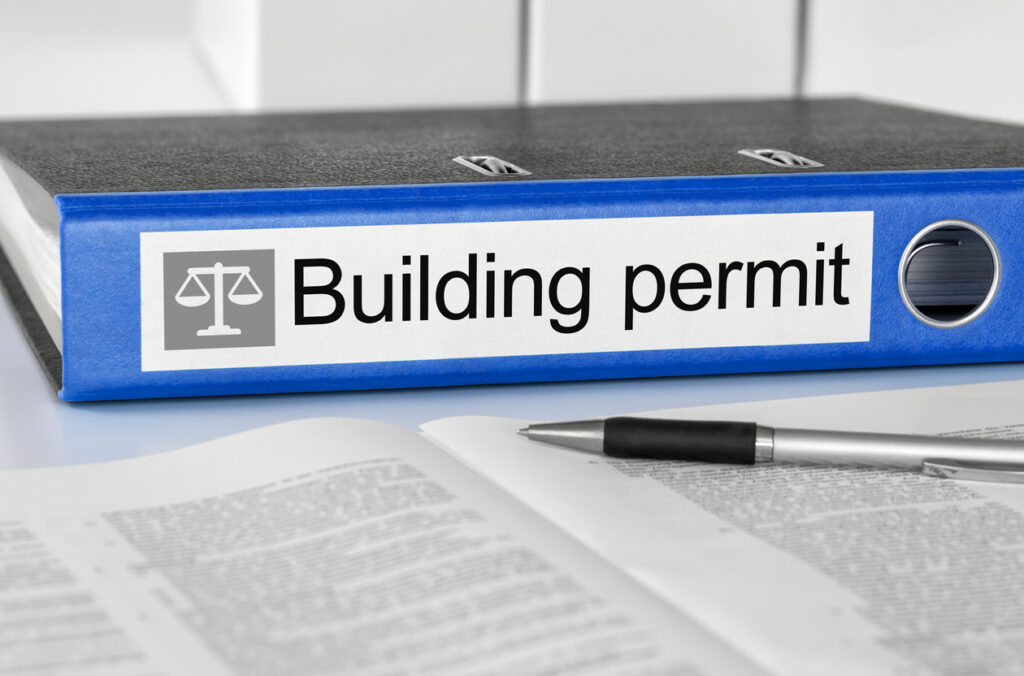 Open building permits are yet another potential stumbling block to smooth and trouble free home sales. With the housing market in Connecticut continuing its surge, encountering these hurdles has become widespread.
Open building permits are yet another potential stumbling block to smooth and trouble free home sales. With the housing market in Connecticut continuing its surge, encountering these hurdles has become widespread.
It’s essentially a standard now for attorneys handling real estate transactions to advise clients to commission municipal inspections. While many sellers and buyers might think that the title search and building inspection would reveal any permit-related hindrances to a sale, that’s not the case. A title search only reveals encumbrances on the title, or deed, to the property, while a building inspection is only concerned with physical aspects of the structures.
A municipal search may reveal whether work has been done to a property without a building permit when one was required, and also discovers whether there are open building permits for completed upgrades—meaning a permit was filed, the work was done and presumably paid for, but the contractor or other party who initiated the building permit never returned to close it out, usually because no one called the building department for a final inspection. In such a case, it’s also likely that party failed to inform the property owner that the project lacked the proper legal punctuation mark.
The Washington Post described one dramatic example in a story, recounting how a couple about to close on the sale of their home was awakened by a loud alarm, which led to discovering the previous owner had a hidden alarm installed, improperly, and the building permit had been left open. Suddenly the sellers had an unexpected problem to remedy before the closing could proceed.
While that situation may have been unusual, open building permits are not uncommon. Since Memorial Day, several of Cramer & Anderson’s closings have involved open building permits.
It’s a difficult thing to deal with when you’re trying to clean out a house and move, which is why we recommend sellers have municipal inspections performed and check for open building permits before listing a property. Some real estate agents will address the issue of potential open permits.
When an open building permit is discovered, sellers must close the file, which can get complicated, as in the case of that hidden alarm.
A building inspector will generally have to visit the property to inspect the work that was done and ensure it was done properly and meets the standards of any applicable building codes.
If it involves something like the installation of a generator system, the work will be obvious and straightforward for the inspector to assess, but if the permit was for a roof installed some time earlier, it can be difficult for the inspector to judge the scope and details of the work.
Additionally, it’s important to know that the issue of open building permits only applies within nine years of the issuance of the building permit. Public Act 17-176 set the time limit and states that after nine years of issuance a permit is deemed closed and therefore those would not affect the closing of a sale.
As a preventative measure, to avoid open building permits, homeowners should require contractors to show that a final inspection was done and the file was closed before providing the last payment for a project.
To learn more about this and other issues related to the transfer of residential or commercial property in Connecticut, contact any of our highly-experienced Residential & Commercial Real Estate Law attorneys:
Perley Grimes
Kenneth Taylor
Ted Backer
Dolores Schiesel
Kent Mancini
Lisa Buzaid
Neal D. White, Jr.
About Cramer & Anderson
With six offices in western Connecticut, the firm serves clients in nearly 20 practice areas, ranging from Estate Planning and Elder Law to Workers’ Comp, Personal Injury, Social Security Disability, Immigration Law, and more.
Our team of highly-experienced attorneys offers a warm, hometown sensibility combined with a sophisticated, worldly outlook. To learn more, see our website at www.www.crameranderson.com or call the New Milford office at (860) 355-2631.


